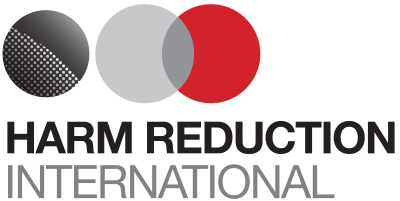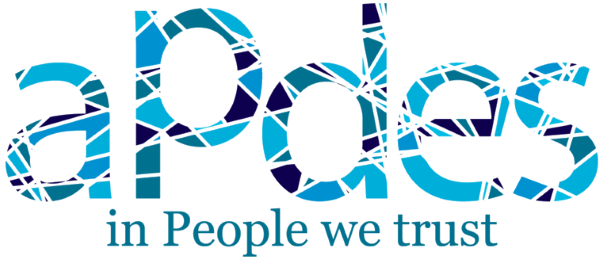Harm Reduction International presents a number of awards at our international conference to acknowledge the contributions of outstanding groups or individuals in the fields of drug use, health and human rights.
Know someone who has made an impact in harm reduction domestically or internationally? Help ensure they get the recognition they deserve by nominating them for an award presented at HR19.
Nominations for the International Rolleston, Carol and Travis Jenkins are now closed. Nominations for the National Rolleston Award are open until Monday 28 January. View each section, below, for further details on selection criteria.
Nomination process
Nominations should be submitted in English via email to awards@hri.global, and should include:
- A nomination form for the National Rolleston here.
- A short biography/description of the nominee, a statement explaining the reasons for your nomination and letters of support (the requirements for each award can be found in nomination forms)
-
The International Rolleston Award
The International Rolleston Award is given to an individual, group or organisation that has made an outstanding contribution to harm reduction at an international level.
The award aims to recognise work in any of the following areas:
- Harm reduction programming and practice
- Harm reduction policy
- Advocacy for harm reduction
- Harm reduction teaching and training
- Science, research or critical thinking relevant to harm reduction
- Provision of funding or resources for harm reduction
Nomination criteria
Nominations are invited for individuals, groups or organisations working at the community level, national and/or international levels.
The following criteria, with a focus on ‘international significance,’ will be considered and assessed in reviewing the nominees:
- The pioneering nature of work in harm reduction programmes, practice, policy, teaching and training, research, advocacy and funding
- Significance of the impact of this work
- Evidence of courage or leadership in performance of the work, and long-term commitment
- Potential for the award to strengthen the nominee’s work
- Potential for the award to enhance visibility and public awareness of an issue or project the nominee is addressing
Background
The award is named after Sir Humphry Rolleston, President of the Royal College of Physicians who chaired the UK Departmental Committee on Morphine and Heroin Addiction. In 1926 the committee concluded that the prescription of heroin or morphine could be regarded as legitimate medical treatment for those who required it – a decision that epitomises a benign, pragmatic and humane approach to drug problems, and was a landmark event in the history of harm reduction.
Previous Winners
- 1992 Dave Purchase (on behalf of North American Syringe Exchange, USA)
- 1993 Ernie Drucker (USA)
- 1994 Alex Wodak (Australia)
- 1995 Anne Coppell (France)
- 1996 Aaron Peak (Nepal)
- 1997 Luigi Ciotti (Italy)
- 1998 Nick Crofts (Australia)
- 1999 Jean-Paul Grund (Netherlands)
- 2000 Pat O'Hare (Italy)
- 2001 Fabio Mesquita (Brazil)
- 2002 Ethan Nadelmann (USA)
- 2003 Ambros Uchtenhagen (Switzerland)
- 2004 Anya Sarang (Russia)
- 2005 Zunyou Wu (China)
- 2006 Robert Newman (USA)
- 2007 Vladimir Mendelevich (Russia)
- 2008 Andrew Ball (Australia)
- 2009 Ralf Jurgens (Canada) and Sam Friedman (USA)
- 2010 Gerry Stimson (UK)
- 2011 Jude Byrne (Australia) and Rich Needle (USA)
- 2013 Kasia Malinowska-Sempruch (Poland/USA)
- 2015 Edo Augustian Nasution (Indonesia)
- 2017 Péter Sárosi and István Gábor Takács (Hungary)
-
The National Rolleston Award
The National Rolleston Award is given to an individual, group or organisation that has made an outstanding contribution to harm reduction in the conference host country. For HR19, all nominations for this award must come from Portugal.
The award aims to recognise work in any of the following areas:
- Harm reduction programming and practice
- Harm reduction policy
- Advocacy for harm reduction
- Harm reduction teaching and training
- Science, research or critical thinking relevant to harm reduction
- Provision of funding or resources for harm reduction
Nomination criteria
Nominations are invited for individuals, groups or organisations working at the community level, national and/or international levels.
The following criteria, with a focus on ‘national significance,’ will be considered and assessed in reviewing the nominees:
- The pioneering nature of work in harm reduction programmes, practice, policy, teaching and training, research, advocacy and funding
- Significance of the impact of this work
- Evidence of courage or leadership in performance of the work, and long-term commitment
- Potential for the award to strengthen the nominee’s work
- Potential for the award to enhance visibility and public awareness of an issue or project the nominee is addressing
Background
The award is named after Sir Humphry Rolleston, President of the Royal College of Physicians who chaired the UK Departmental Committee on Morphine and Heroin Addiction. In 1926 the committee concluded that the prescription of heroin or morphine could be regarded as legitimate medical treatment for those who required it – a decision that epitomises a benign, pragmatic and humane approach to drug problems, and was a landmark event in the history of harm reduction.
Previous Winners
- 1992 Les Drew (Australia)
- 1993 Wijnand Mulder (Netherlands)
- 1994 Catherine Hankins (Canada)
- 1995 San Giuliano Unità di Strada (Italy)
- 1996 The Australian IV League (Australia)
- 1997 Alain Mucchielli (France)
- 1998 Tarcisio Andrade (Brazil)
- 1999 André Seidenberg (Switzerland)
- 2000 Mike Wavell (Jersey)
- 2001 Jimmy Dorabjee (India)
- 2002 Tatja Kostnapfel-Rihtar (Slovenia)
- 2003 Mae Chan Project (Thailand)
- 2004 Tony Trimingham (Australia)
- 2005 Des Flannagan (Northern Ireland)
- 2006 The Drug User Advisory Group (Canada)
- 2007 Marek Zygadlo (Poland)
- 2008 Àmbit Prevenció (Spain)
- 2009 Thai Drug Users’ Network (TDN) Founders (Thailand)
- 2010 Russell Newcombe (UK)
- 2011 Elie Aaraj (Lebanon)
- 2015 Malaysian AIDS Council
- 2017 Vancouver Area Network of Drug Users (VANDU) (Canada)
-
The Carol and Travis Jenkins Award
This award has been presented each year since 2005 to a person who either used to, or currently uses drugs, and who has made an outstanding contribution to reducing drug-related harm.
The award was initially named after Travis Jenkins, an extraordinary jazz musician and composer who died of cancer in 2004. In 2009, the award was renamed to include the name of Travis’s wife, Carol, who worked for many years with the Papua New Guinea Institute of Medical Research as a medical anthropologist, and was one of the leading instigators to setting up the National Aids Council. Carol Jenkins was renowned for her research into sexual behaviour and was a leading expert on HIV/AIDS. Equally important was her connection with the Hagahai people of Papua New Guinea, who were her second family.
Previous Winners
- 2005 Paisan Suwannawong (Thailand)
- 2006 Jason Farrell (USA)
- 2007 Alexandra (Sasha) Volgina (Russia)
- 2008 Theo van Dam (Netherlands)
- 2009 Holly Bradford (USA)
- 2010 Joergen Kjaer (Denmark)
- 2011 Tam Miller (Scotland)
- 2013 Loon Gangte (India)
- 2015 Abdur Raheem Rajaey (Afghanistan)
- 2017 Lee Hertel (USA)
-
The Brooklyn McNeil Rae of Hope Award
The Centre on Drug Policy Evaluation (CDPE - formerly the International Centre for Science in Drug Policy) launched the Brooklyn McNeil Rae of Hope Award at HR17 in Montreal, to honour the best scientific abstract in the area of harm reduction or drug policy. The aim of the award is to encourage high-quality scientific research to support evidence-based advocacy efforts in drug policy reform. The winner receives a waiver to publish in the peer-reviewed open-access Harm Reduction Journal, as well as €500.
The award is named after Brooklyn Rae McNeil, a vocal advocate for safer injection sites and a vital support in the lives of many people who use drugs in Toronto, Canada. As a harm reduction activist whose life was cut too short as a result of an opioid overdose, Brooklyn’s spirit serves as an unwavering reminder of the need to conduct research and evidence-based advocacy to prevent the senseless loss of lives that could be avoided with drug policies grounded in evidence and human rights.
Previous Winners
- 2017 - Elaine Hyshka (Canada) - "A comparative analysis of provincial and territorial harm reduction policy in Canada"
-
The Film Festival Award
This award was jointly presented by Harm Reduction International and the Burnet Institute (Australia), from 2004 until 2015, to the best film or documentary at the International Drugs and Harm Reduction Film Festival.
Previous Winners
- 2004 “Hi Dad” - Theresa Wynnyk & Sherry McKibben (Canada)
- 2005 “Mohammad and the Matchmaker” - Maziar Bahari (Iran)
- 2006 “Worth Saving” - Gretchen Hildebran & Leah Wolchok (USA)
- 2007 "FrontAids" - Eugene Zaharov and Sergey Bogatyrev (Russia)
- 2008 "Harm reduction video, Cambodia – Injecting Drug Use"- David Eberhardt (USA)
- 2009 "A Cleaner Fix"- David Gough
- 2010 "Ben: Diary of a Heroin Addict" Anne Rogers, Darren Teale & Ollie Lambert (UK)
- 2011 "I'm Dangerous with Love" Michel Negroponte (USA)
- 2013 “The Journey of Change” - Bikas Gurung (Nepal)
- 2015 "The hidden and forgotten plague - A film about hepatitis C in Sweden" Swedish Drug Users Union


